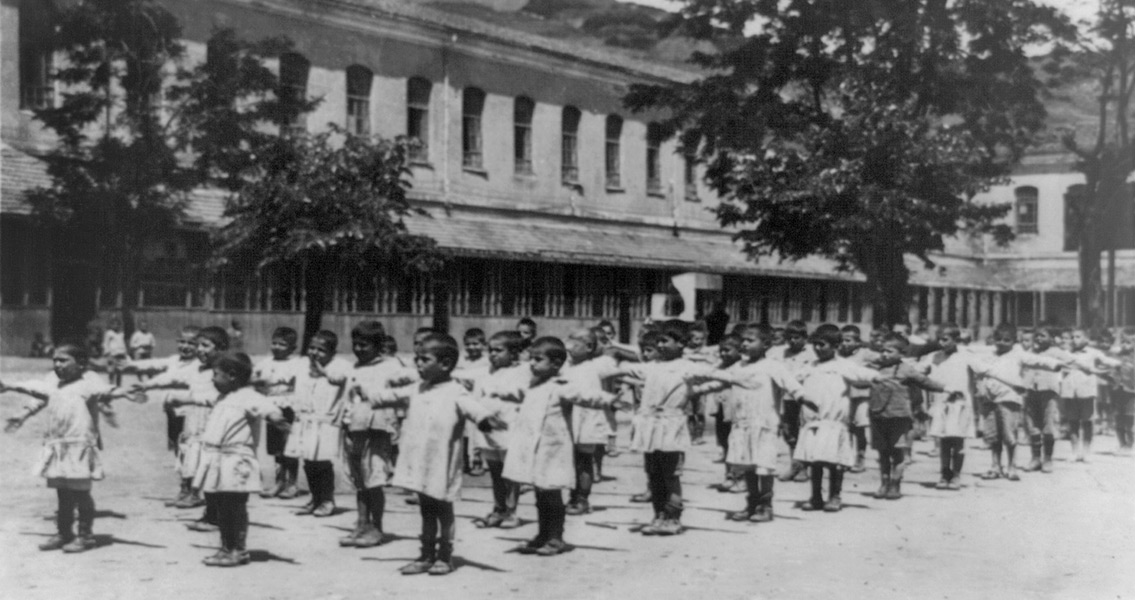<![CDATA[A speech by Pope Francis has served to highlight the continued controversy over the mass killing of Armenians in the Ottoman Empire at the start of the twentieth century. Speaking at Sunday mass in the Armenian Catholic rite at Peter's Basilica in Rome, the Pope said that humanity had lived through three "massive and unprecedented tragedies" in the twentieth century. He elaborated and particularly focused on events in Turkey during the First World War, "The first (tragedy), which is widely considered 'the first genocide of the 20th Century', struck your own Armenian people." Before listing the horrors of Nazi Germany and Stalin's Russia as the other great tragedies. In response, the Turkish government has summoned an envoy from the Vatican for a meeting with the Turkish foreign ministry in Ankara. The area of contention relates to the Pope's use of the word 'genocide', a term the Turkish government frequently contests, believing it links Turkey to a crime it did not commit. As the centenary of the events started in 1915 draws nearer, the tragedy remains massively controversial. Many countries around the world have officially declared the treatment of Armenians a genocide, while others, such as the United States, have avoided doing so. In Turkey, it is still illegal to talk about the fate of the Armenian people. Armenians have lived in the Caucasus Region of Eurasia for over 3,000 years. At several points in history they have been an independent entity, most notably at the start of the fourth century when Armenia became the first nation in the world to make Christianity its official religion. In the fifteenth century Armenia was absorbed into the Ottoman Empire. As Christians in a Muslim dominated society, Armenians were generally treated unequally, having less legal rights and higher taxes than Muslims. Nevertheless, Armenians were allowed some autonomy, and the community was able to thrive under Ottoman rule. As the Ottoman Empire entered its decline towards the end of the nineteenth century, resentment towards Armenians grew, partly as a result of mistrust of their differing religious beliefs, and partly because of resentment of the community's success. Armenians increasingly campaigned for greater rights and freedoms, actions which ultimately provoked a brutal response from Ottoman authorities. Acts of violence against Armenians had been carried out in the Ottoman Empire before, but those commenced in 1915 were by far the most horrific. In 1908, a new government had come to power in Turkey. Replacing the rule of the Sultan with a more constitutional form of government, the Young Turks were reformers, but also incredibly nationalistic. Non-Turkish people, and particularly those that were not Muslim, increasingly came to be viewed as a threat. The First World War proved the crucial turning point, as Armenians were accused of supporting Russia (Turkey's enemy in the conflict) as a means to try and gain independence. On 24th April 1915, 200 Armenian intellectuals were arrested and imprisoned, with most eventually being killed. There followed a wave of deportations, executions, torture and massacres of Armenian people throughout the Ottoman Empire. Armenians were forced to march through the desert to Syria, with many dying or being killed en route. Accounts suggest that other Armenian communities were simply massacred by members of the Turkish military. Estimates vary, but most historians as well as Armenian sources tend to argue that of the Ottoman Empire's Armenian population of two million people, 1.5 million were killed. Others have suggested the death toll was actually much lower, with conservative estimates claiming 600,00 Armenians were killed. Those who refute the claims that the Young Turk government instigated a genocide of the Armenian people argue that the deaths were in fact the consequence of an 'Armenian Revolt'. Rather than being a state led attempt to forcefully remove or kill the Armenian minority, they argue it was something closer to civil war. The Armenian minority had attempted to carve out an independent state for itself, leading to a long and brutal battle. They argue that along with the Armenian casualties, 1.1 million Ottoman Muslims also lost their lives in the conflict. While the US government officially avoids using the term genocide, twenty other countries have labelled the treatment of the Armenians as such. In France, legislation was passed in 2012 which punished Armenian Genocide Denial with a year long prison sentence and significant fine. Turkish press branded then French Prime Minister Nicholas Sarkozy, 'Satan', and the legislation led to diplomatic tension between France and Turkey. Members of the Armenian Diaspora, which numbers some 10 million people across the world, continue to campaign for the recognition of the 'Armenian Genocide'. As revealed by the outrage at the Pope's speech however, the wording is still hugely controversial and capable of igniting intense debate and emotion. ]]>
The Continued Controversy of the Armenian Genocide
